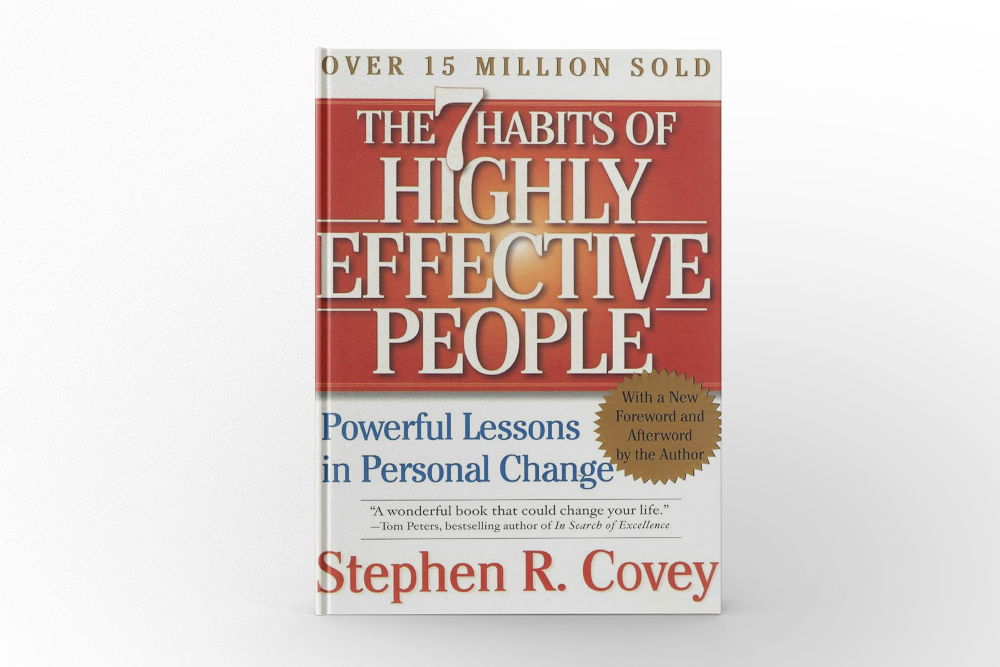“The 7 Habits of Highly Effective People by Stephen R. Covey” is a transformative guide that has empowered millions to achieve personal and professional success. This seminal work introduces a principle-centered approach to effectiveness, emphasizing timeless values and proactive behaviors. Covey’s insights have made a lasting impact on readers worldwide, helping them cultivate habits that lead to meaningful and sustained success. In this article, we will explore the book’s content, themes, and the author’s background, providing a comprehensive overview of why “The 7 Habits of Highly Effective People” remains a cornerstone of personal development literature.
Author’s Background
Stephen R. Covey was a renowned author, educator, and speaker, recognized as one of Time magazine’s 25 most influential Americans. Born in 1932, Covey earned an MBA from Harvard University and a doctorate from Brigham Young University. His career spanned various roles, including professor, organizational consultant, and co-founder of FranklinCovey, a global professional services firm. Covey’s work focused on leadership, personal effectiveness, and family dynamics, and his books have sold over 25 million copies in 38 languages. His legacy continues to inspire individuals and organizations to pursue excellence through principle-centered living.
In-Depth Summary
“The 7 Habits of Highly Effective People by Stephen R. Covey” is structured around seven core habits that Covey identifies as essential for personal and professional effectiveness. Each habit builds on the previous one, creating a comprehensive framework for achieving success.
Habit 1: Be Proactive
Covey begins with the principle of proactivity, emphasizing that individuals have the power to choose their responses to any situation. He introduces the concept of the “Circle of Influence” and the “Circle of Concern,” encouraging readers to focus on what they can control rather than what they cannot. By taking responsibility for their actions and attitudes, individuals can create positive change in their lives.
Habit 2: Begin with the End in Mind
This habit focuses on the importance of setting clear goals and envisioning the desired outcomes. Covey advocates for creating a personal mission statement that reflects one’s values and long-term objectives. By defining what truly matters, individuals can align their daily actions with their ultimate goals, ensuring that their efforts are purposeful and directed.
Habit 3: Put First Things First
Covey emphasizes the need to prioritize tasks based on their importance rather than their urgency. He introduces the “Time Management Matrix,” which categorizes activities into four quadrants: urgent and important, not urgent but important, urgent but not important, and not urgent and not important. By focusing on activities that are important but not urgent, individuals can achieve greater productivity and avoid the trap of constant firefighting.
Habit 4: Think Win/Win
This habit promotes the idea of seeking mutually beneficial solutions in interactions with others. Covey argues that effective relationships are built on a foundation of trust and cooperation, where both parties feel valued and respected. By adopting a win/win mindset, individuals can create synergistic outcomes that benefit everyone involved.
Habit 5: Seek First to Understand, Then to Be Understood
Covey highlights the importance of empathetic listening in effective communication. He encourages readers to listen with the intent to understand rather than to reply, fostering deeper connections and more meaningful interactions. By truly understanding others’ perspectives, individuals can communicate more effectively and build stronger relationships.
Habit 6: Synergize
This habit focuses on the power of collaboration and teamwork. Covey explains that synergy occurs when individuals work together to create outcomes that are greater than the sum of their parts. By valuing diversity and leveraging each person’s strengths, teams can achieve innovative solutions and higher levels of performance.
Habit 7: Sharpen the Saw
The final habit emphasizes the importance of self-renewal and continuous improvement. Covey advocates for regular activities that nurture the physical, mental, emotional, and spiritual dimensions of life. By investing in self-care and personal growth, individuals can maintain their effectiveness and sustain their success over the long term.
Themes and Insights
“The 7 Habits of Highly Effective People by Stephen R. Covey” explores several profound themes:
- Principle-Centered Living: Covey emphasizes the importance of living according to timeless principles such as integrity, fairness, and human dignity. These principles serve as a foundation for personal and professional effectiveness.
- Proactivity and Responsibility: The book highlights the power of taking responsibility for one’s actions and attitudes. Covey argues that individuals have the ability to choose their responses and create positive change in their lives.
- Goal Setting and Prioritization: Covey underscores the importance of setting clear goals and prioritizing tasks based on their importance. By aligning daily actions with long-term objectives, individuals can achieve greater productivity and fulfillment.
- Effective Communication and Relationships: The book emphasizes the value of empathetic listening and seeking win/win solutions in interactions with others. Covey argues that effective relationships are built on trust, cooperation, and mutual respect.
- Continuous Improvement: Covey advocates for regular self-renewal and personal growth. By investing in self-care and continuous learning, individuals can maintain their effectiveness and sustain their success over time.
Recommendation
“The 7 Habits of Highly Effective People by Stephen R. Covey” is a must-read for anyone seeking to improve their personal and professional effectiveness. Its timeless principles and practical advice make it accessible to a wide audience, from students and professionals to leaders and educators. The book’s engaging narrative and relatable examples ensure that readers will not only learn but also be inspired to apply the habits in their own lives. Covey’s insights provide a powerful framework for achieving meaningful and sustained success.
Conclusion
In “The 7 Habits of Highly Effective People by Stephen R. Covey,” readers are invited to embark on a journey of personal and professional transformation. Covey’s masterful storytelling and profound insights make this book a powerful and enlightening read. By adopting the seven habits, individuals can cultivate a principle-centered approach to effectiveness, leading to greater productivity, fulfillment, and success. “The 7 Habits of Highly Effective People” is a timeless work that continues to resonate with readers, offering valuable lessons on leadership, communication, and personal growth.
